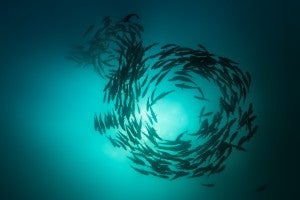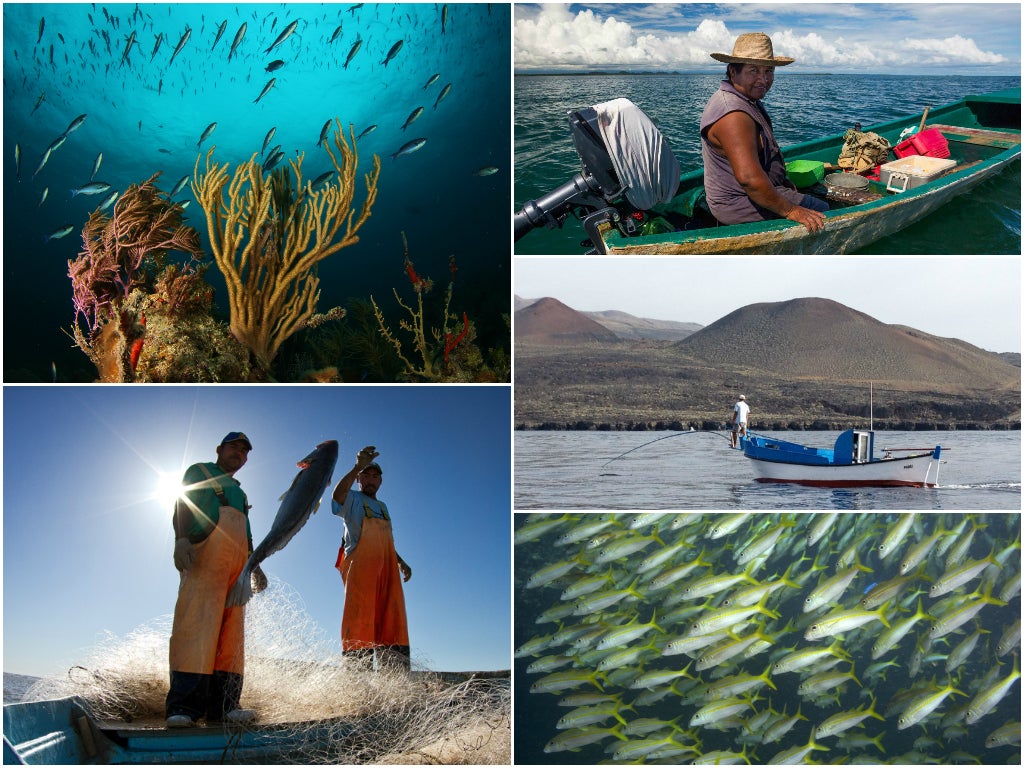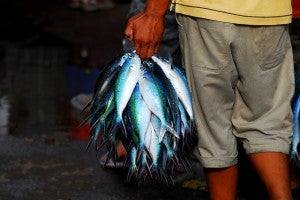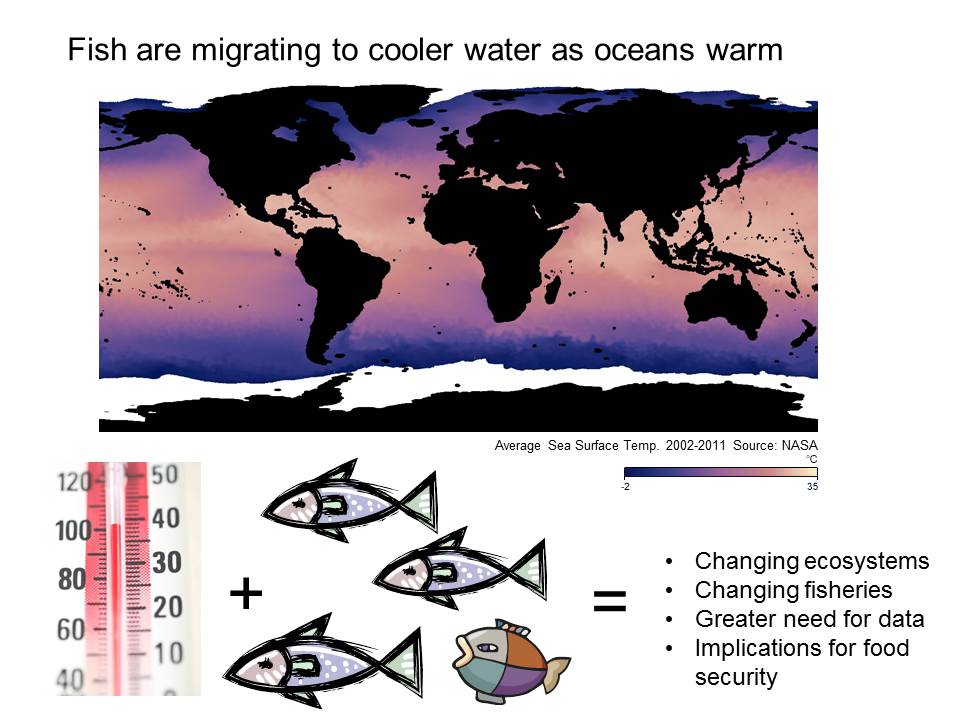
A spawning aggregation of the bigeye trevally, Caranx sexfasciatus, Cabo Pulmo National Park, Mexico.
Photo Credit: Octavio Aburto-Oropeza/Marine Photobank
“Unleashing the self-interest of local fishermen to advance both conservation and economic development can create one of those rare win-win scenarios.” This powerful quote from a recent op-ed, beautifully describes what is at the core of EDF’s mission to save fisheries.
The authors of that op-ed, Carl Safina, founding president of the Blue Ocean Institute at Stony Brook University, and Brett Jenks, chief executive of Rare, called attention to both the global depletion of fisheries AND the solution. They discuss how despite growing concern about the dire state of global fish populations, there is hope to rebuild them. “Why are we hopeful? They write, “It’s because the analysis of global fisheries has a silver lining. We have not reached a point of no return. We have time. Solutions exist.”
They draw from the first comprehensive analysis of more than 10,000 fisheries in the journal Science which finds that, “When sustainably managed, marine fisheries provide food and livelihoods for hundreds of millions of people worldwide.” Fisheries and food security for future generations are a challenge that we believe can be solved by partnering with fishermen to find common solutions, but we must act now.
The United States has made great progress in fisheries management. Almost two-thirds of fish landed in the United States are done so under a catch share. However, the United States is just one piece of the puzzle, Safina and Jenks point out that, “small-scale fishers — who fish within 10 miles of their coast — account for nearly half of the world’s global catch and employ 33 million of the world’s 36 million fishermen, while also creating jobs for 107 million people in fish processing and selling [pdf]. Mostly poor, they live mainly in areas lacking fisheries management, monitoring and enforcement.” Read More »













